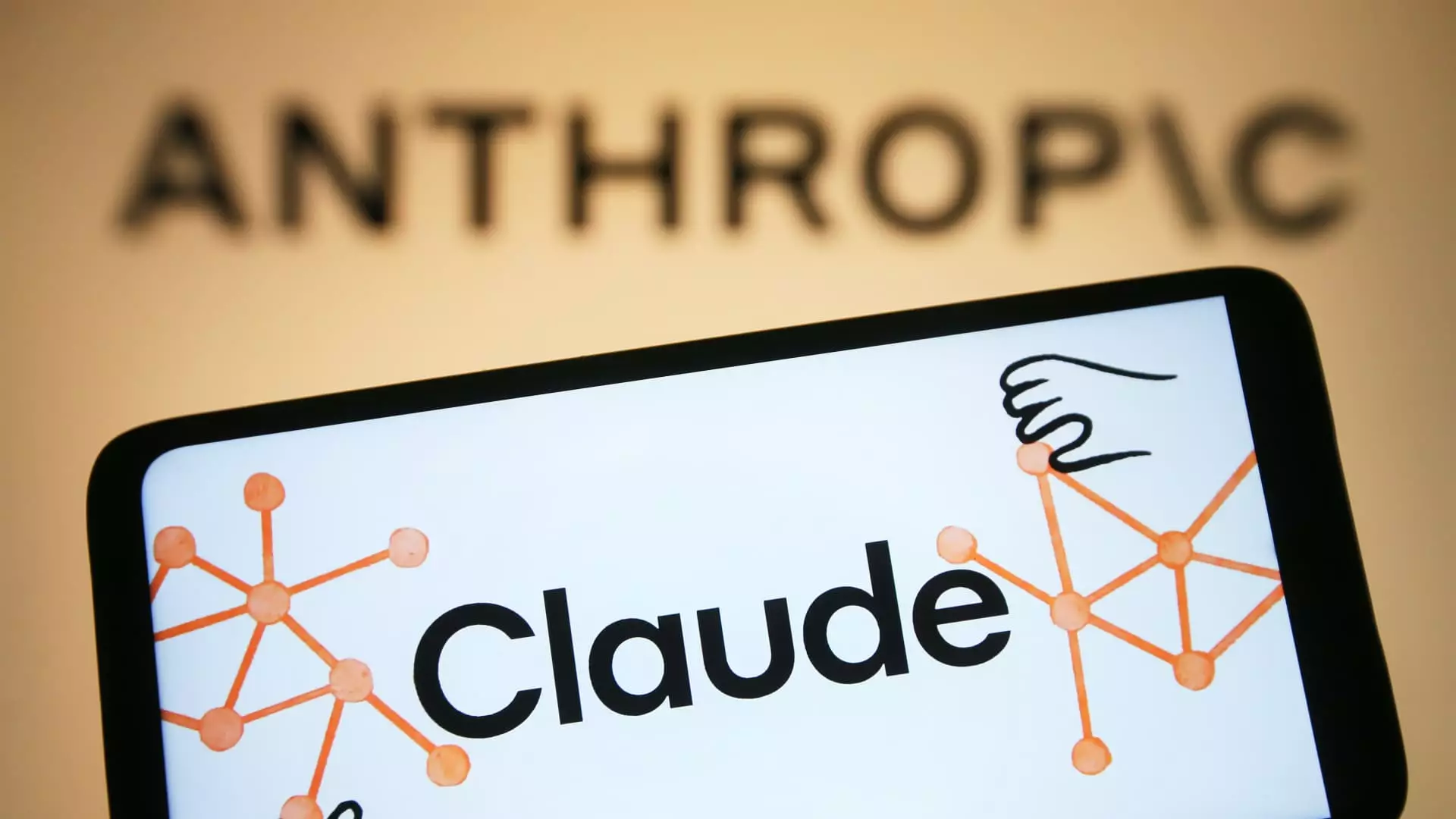As Anthropic unveils its latest “responsible scaling” policy, there exists a palpable tension beneath the surface—one that should not go unexamined. While the company, a newcomer prominently backed by Amazon, claims to prioritize safety in deploying its AI technologies, their actions provoke critical questions about the true motivations behind such policies. By emphasizing models that could potentially assist in developing hazardous capabilities, like chemical and biological weapons, Anthropic seems to be draping itself in a cloak of responsibility while simultaneously courting profit from the broader generative AI marketplace, which is projected to exceed $1 trillion in just a decade.
The Illusion of Safety Measures
It is commendable that Anthropic has taken steps toward enhancing security, as outlined in their recent blog post. Yet, one cannot help but notice a disconcerting pattern: only when the models are deemed powerful enough to serve dangerous ends do these safety protocols come into play. This reactive stance suggests that Anthropic’s responsibility is more performative than proactive. If the intent was genuinely rooted in ethical considerations, one would expect the company to set stringent parameters before unleashing powerful technologies rather than waiting for evidence of potential misuse.
Furthermore, the announcement of security measures like sweeping for hidden devices and the establishment of an executive risk council appears more as a public relations maneuver rather than a heartfelt dedication to responsibility. In a sector where innovation is often pursued without limits, these measures can feel like flimsy band-aids over gaping wounds—indicative of a culture that prioritizes growth over ethical stewardship.
The Competitive and Moral Landscape
The AI landscape is plagued not just by cutting-edge technologies but by a fierce competitive spirit that can lead to shortsighted decisions. Anthropic’s valuation, sitting at a staggering $61.5 billion, pales in comparison to the juggernauts of OpenAI and others. This kind of valuation does not drive responsible behavior; rather, it fuels an arms race where companies are incentivized to push the boundaries of what their technologies can do—often at the cost of ethical considerations. The implications of such a mindset foster environments where competent opponents, like DeepSeek in China, can pose significant risks, exacerbating the global stakes as advancements continue unchecked.
Meanwhile, tech giants like Google and Microsoft race to outdo each other, seemingly disregarding the underlying ethical implications of unleashed, unregulated AI. In this context, Anthropic’s claims of prioritizing safe development, while winning accolades from industry observers, reflect a disturbing trend: the illusion that we can continue to push the limits of technology without inviting grave risks.
Calling for True Vigilance
What the AI sector requires is unwavering commitment to accountability over thinly veiled corporate responsibility. As we navigate a future tangled in advanced technologies, it becomes critical for companies like Anthropic to act not just as innovators but as guardians of ethics. This means committing to stringent oversight from the outset, not just dabbling in reactive measures when the potential for harm becomes too evident to ignore. The urgency of fostering ethical innovation is undeniable, and only through steadfast vigilance can we hope to harness the incredible potential of AI without risking our very safety and security.



Leave a Reply